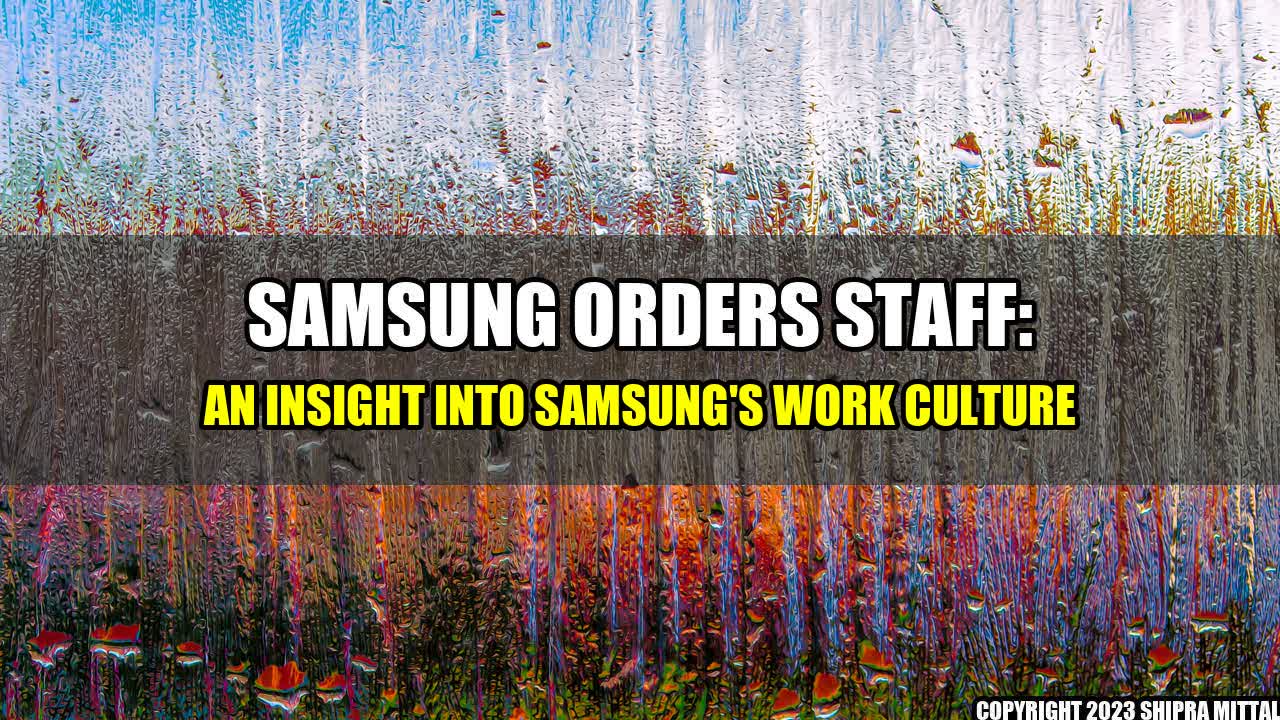The recent news of Samsung ordering its employees to return to work from home after months of remote work has been making headlines in the tech world. This move has raised many questions about Samsung's work culture and the impact of remote work on productivity and employee satisfaction.
A Look into Samsung's Work Culture
Like many other tech giants, Samsung is known for its intense work culture. Employees are expected to work long hours and dedicate themselves to the company's success. This work culture has often been criticized for being too harsh and causing burnout among employees.
However, Samsung has also been praised for its focus on innovation and its dedication to pushing the boundaries of technology. The company's culture of hard work and commitment to excellence has helped it stay ahead of its competitors and maintain its position as a leader in the tech industry.
The Impact of Remote Work on Samsung's Productivity
When the pandemic hit, Samsung, like many other companies, had to quickly shift to remote work to ensure the safety of its employees. This transition was not without its challenges, but Samsung was able to adapt quickly and maintain its productivity levels.
However, as the pandemic has started to subside in many parts of the world, Samsung has made the decision to bring its employees back to the office. The company has cited concerns about collaboration and innovation as the main reasons for this decision.
While there is no doubt that remote work has its benefits, it can also be challenging for companies that rely heavily on collaboration and face-to-face interaction. Samsung's decision to bring its employees back to the office reflects its commitment to maintaining its culture of innovation and pushing the boundaries of technology.
Real-Life Examples
Other companies in the tech industry have also been grappling with the impact of remote work on their productivity and culture. Apple, for example, has been experimenting with hybrid work models, where employees work from home part-time and come into the office for meetings and collaboration.
Microsoft, on the other hand, has announced that it will allow most of its employees to work from home permanently, citing the benefits of flexibility and work-life balance.
Conclusion
Samsung's decision to bring its employees back to the office is a reflection of its commitment to maintaining its culture of hard work and innovation. While remote work has its benefits, it can also be challenging for companies that rely heavily on collaboration and face-to-face interaction. Samsung's move also raises questions about the future of work and the role of remote work in the tech industry.
References and Further Readings:
- TechRadar: Samsung asks employees to return to the office after almost two years of working from home
- The New York Times: Appleā??s New Hybrid Model Will Test What 'Flexible' Office Really Means
- CNBC: Microsoft to allow most employees to work from home permanently
Hashtags:
- #Samsung
- #WorkCulture
- #RemoteWork
- #ReturnToOffice
- #Productivity
- #EmployeeSatisfaction

Akash Mittal Tech Article
Share on Twitter Share on LinkedIn